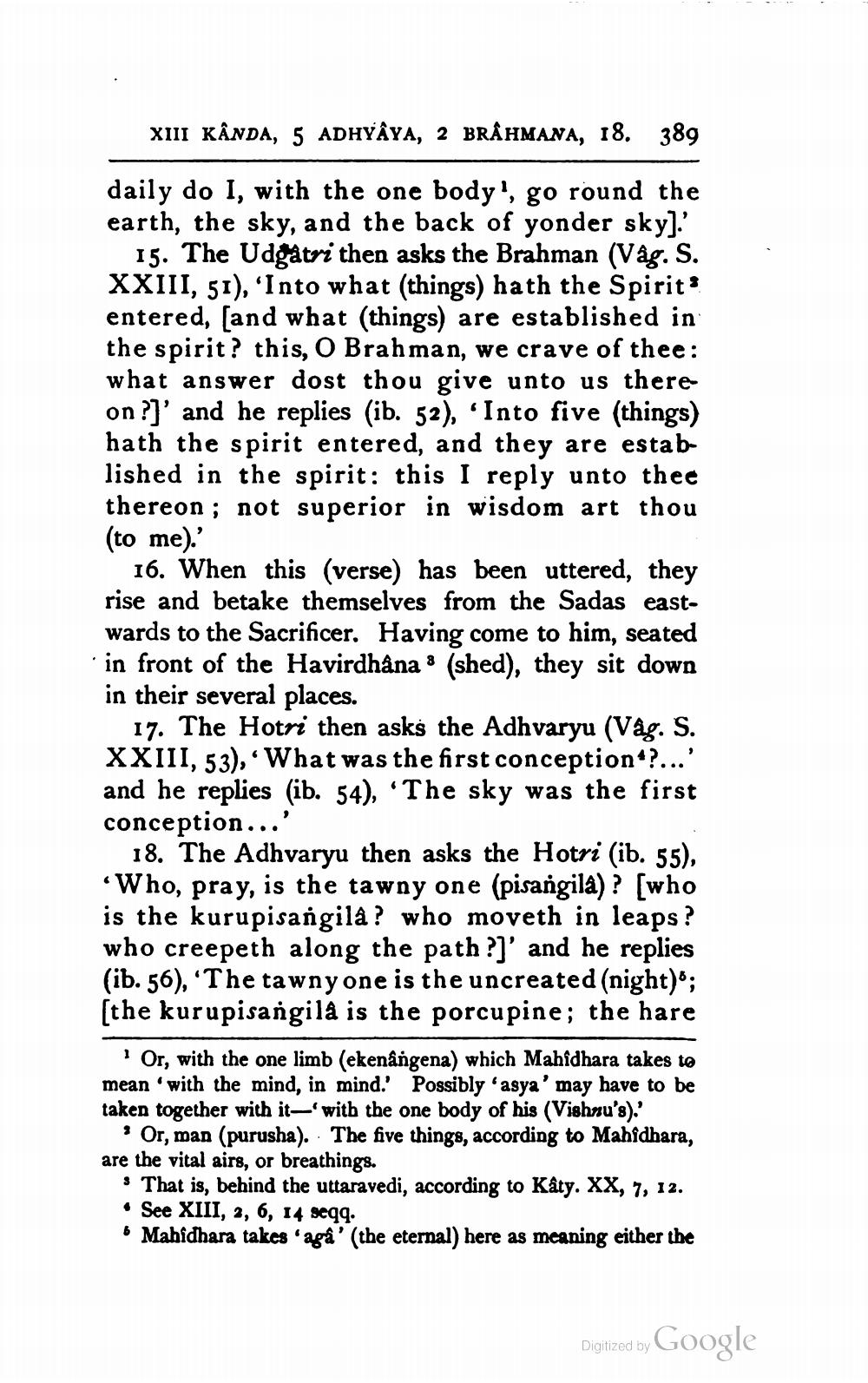________________
XIII KANDA, 5 ADHYAYA, 2 BRAHMANA, 18. 389
daily do I, with the one body', go round the earth, the sky, and the back of yonder sky].'
15. The Udgåtri then asks the Brahman (Vâg. S. XXIII, 51), 'Into what (things) hath the Spirit entered, [and what (things) are established in the spirit? this, O Brahman, we crave of thee: what answer dost thou give unto us thereon?]' and he replies (ib. 52), 'Into five (things) hath the spirit entered, and they are established in the spirit: this I reply unto thee thereon; not superior in wisdom art thou (to me).'
16. When this (verse) has been uttered, they rise and betake themselves from the Sadas eastwards to the Sacrificer. Having come to him, seated in front of the Havirdhâna (shed), they sit down in their several places.
17. The Hotri then asks the Adhvaryu (Vâg. S. XXIII, 53), 'What was the first conception?...' and he replies (ib. 54), 'The sky was the first conception...'
18. The Adhvaryu then asks the Hotri (ib. 55), 'Who, pray, is the tawny one (pisangila)? [who is the kurupisangila? who moveth in leaps? who creepeth along the path ?]' and he replies (ib. 56), 'The tawny one is the uncreated (night)"; [the kurupisangilâ is the porcupine; the hare
'Or, with the one limb (ekenângena) which Mahidhara takes to mean 'with the mind, in mind.' Possibly 'asya' may have to be taken together with it—' with the one body of his (Vishnu's).'
'Or, man (purusha). The five things, according to Mahîdhara, are the vital airs, or breathings.
That is, behind the uttaravedi, according to Kâty. XX, 7, 12. • See XIII, 2, 6, 14 seqq. 'Mahîdhara takes 'aga' (the eternal) here as meaning either the
Digitized by
Google




